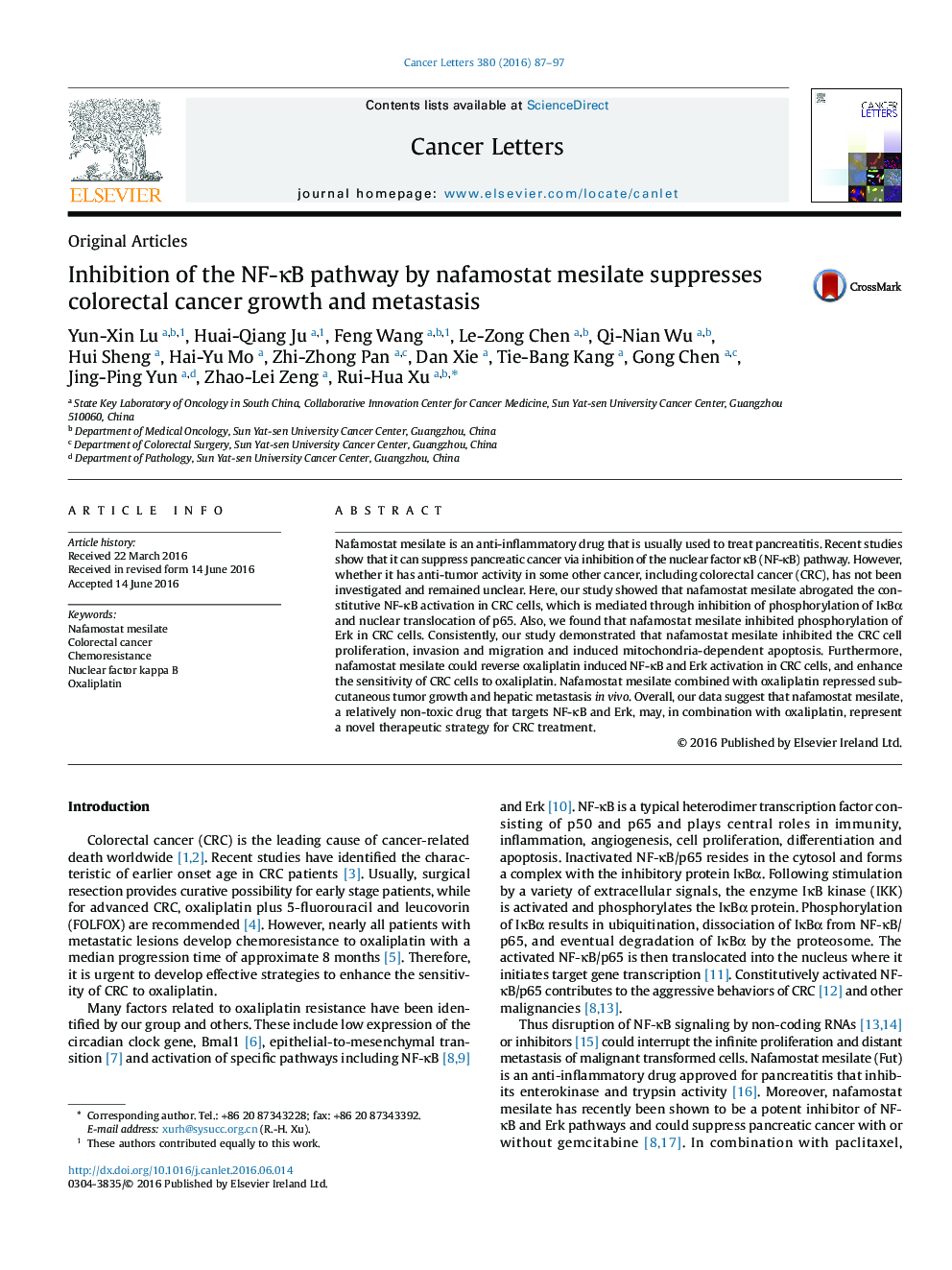| Article ID | Journal | Published Year | Pages | File Type |
|---|---|---|---|---|
| 10901017 | Cancer Letters | 2016 | 11 Pages |
Abstract
Nafamostat mesilate is an anti-inflammatory drug that is usually used to treat pancreatitis. Recent studies show that it can suppress pancreatic cancer via inhibition of the nuclear factor κB (NF-κB) pathway. However, whether it has anti-tumor activity in some other cancer, including colorectal cancer (CRC), has not been investigated and remained unclear. Here, our study showed that nafamostat mesilate abrogated the constitutive NF-κB activation in CRC cells, which is mediated through inhibition of phosphorylation of IκBα and nuclear translocation of p65. Also, we found that nafamostat mesilate inhibited phosphorylation of Erk in CRC cells. Consistently, our study demonstrated that nafamostat mesilate inhibited the CRC cell proliferation, invasion and migration and induced mitochondria-dependent apoptosis. Furthermore, nafamostat mesilate could reverse oxaliplatin induced NF-κB and Erk activation in CRC cells, and enhance the sensitivity of CRC cells to oxaliplatin. Nafamostat mesilate combined with oxaliplatin repressed subcutaneous tumor growth and hepatic metastasis in vivo. Overall, our data suggest that nafamostat mesilate, a relatively non-toxic drug that targets NF-κB and Erk, may, in combination with oxaliplatin, represent a novel therapeutic strategy for CRC treatment.
Related Topics
Life Sciences
Biochemistry, Genetics and Molecular Biology
Cancer Research
Authors
Yun-Xin Lu, Huai-Qiang Ju, Feng Wang, Le-Zong Chen, Qi-Nian Wu, Hui Sheng, Hai-Yu Mo, Zhi-Zhong Pan, Dan Xie, Tie-Bang Kang, Gong Chen, Jing-Ping Yun, Zhao-Lei Zeng, Rui-Hua Xu,
